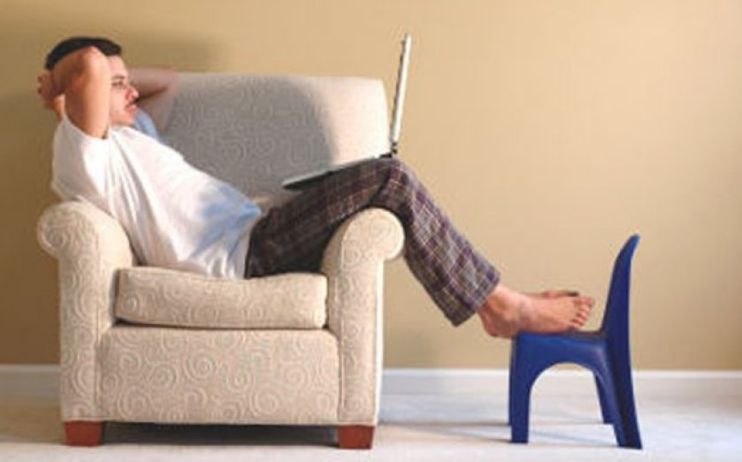Confessions of a hybrid worker: UK a nation of soap dodgers and sweary screamers

New research suggests that Brits may be suffering from ‘home comfort syndrome’ as the lines between home and work blur.
Many hybrid workers are enjoying lock-down lie ins, with almost a fifth saying they roll out of bed with five minutes or less to spare, while 68 per cent wake up with only 30 minutes before starting work.
Interestingly it’s the older generation prioritising their beauty sleep, as 31 per cent of over 55s are waking up five minutes or less before work, according to a new survey by Poly.
Almost a quarter of employees have done exercise, such as yoga, walking around, or stretching when on a conference or video call.
The Poly survey, which was made up of 4,000 hybrid workers from the UK, France, and Germany, shines a light into new working behaviours and habits on and off camera.
When on a video or conference call, 26 per cent of employees have made use of the time to cook their breakfast, lunch or dinner; 21 per cent have cleaned the house; and 19 per cent have done the washing up or loaded the dishwasher
Around 24 per cent of French respondents said that they had had their hair done or a beauty treatment when on a video or conference call. This is compared to just 4 per cent of German and 6 per cent of UK respondents.
The findings expose the good, the bad and even the ugly hybrid of home working. City A.M. studied the details of the survey.
The Good: A better work/life balance
Changing working patterns have resulted in workers having more time for themselves, allowing for anytime working and a better work/life balance.
The proliferation of good quality audio and video devices has boosted the confidence of hybrid workers who are working from different home set-ups or background environments.
28 per cent of UK and French respondents have looked after their children while on a video of conference call, compared to 14 per cent in Germany.
The Bad: Bad habits and arguments
This is not to say that the sudden shift to home working has not taken its toll, with many feeling the tension and friction.
40 per cent of employees admit to shaking their heads or rolling their eyes on video and conference calls, with women more likely to do this than men. A quarter of employees have witnessed a colleague doing so.
Meanwhile, 14 per cent of respondents have seen or heard a colleague screaming when on a video or conference call.
18 per cent of UK respondents and 16% of French respondents have seen or heard a colleague arguing with a partner or family member when on a video or conference call, compared to 8 per cent in Germany.
One in ten (10 per cent) admit to even having a nap while on a video or conference call.
And the Ugly
With co-workers only seeing them through a lens, some let their hygiene slip. This is where the line between what is and isn’t acceptable to do while at work has shifted.
Over a third of employees have gone to the toilet when on a video or conference call while 15 per cent of UK respondents and 14 per cent of French respondents have witnessed someone picking their nose on a video or conference call, compared to just 7 per cent in Germany.
14 per cent of employees admit to giving the finger or swearing on a video or a conference call, with 9 per cent witnessing a colleague doing so.
Of employees that are less concerned about their appearance since working from home (57 per cent), 50 per cent admit to wearing deodorant less frequently and 34 per cent admit to brushing their teeth less frequently.
Of employees that are less concerned about their appearance, 39 per cent have been washing less frequently and 44 per cent have been more open to working while hungover.
67 per cent of those less concerned about their appearance since working from home say that they have saved money by not buying smarter clothes and toiletries.
Finally, 73 per cent have been spending less time grooming and getting ready for work, while 72 per cent have been using fewer products, such as make-up and hair gel.